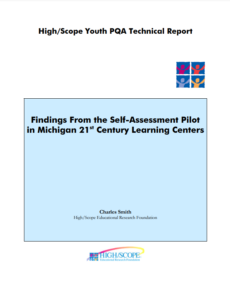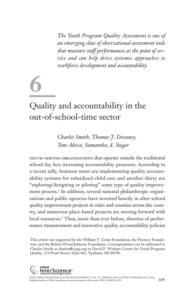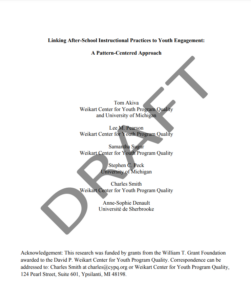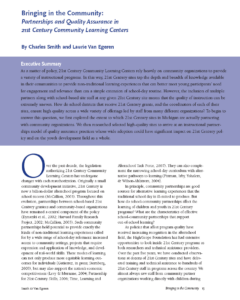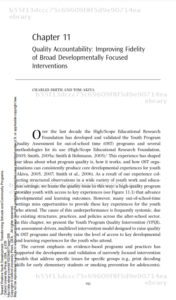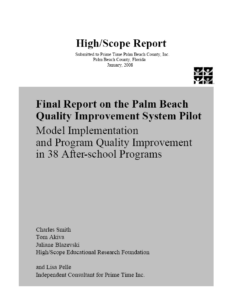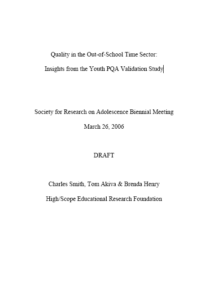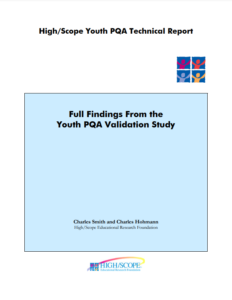Overall 24 sites within 17 grantees participated in the self-assessment pilot study by assembling staff teams to collect data and score the Youth Program Quality Assessment (PQA). Youth PQA data collected using the self-assessment method demonstrated promising patterns of both internal consistency and concurrent validity with aligned youth survey responses.
Quality and Accountability in the Out-of-School Time Sector
In the fragmented OST sector, defining and measuring quality in terms of staff behaviors provides a common framework that can reduce obstacles to performance improvement and streamline data-driven accountability. This chapter views the point of service as the critical unit of study because it is ubiquitous across OST programs and because it is the place where key developmental experiences are intentionally delivered.
Linking Management Practices to Instructional Performances in OST Organizations
This paper uses pattern centered methods to describe the association between the quality of instruction available and youth’s level of mental engagement with that instruction.
Bringing in the Community: Partnerships and Quality Assurance
This paper, published in the Fall 2008 edition of Afterschool Matters: Occasional Paper Series, describes community partnerships in Michigan’s 21st CCLC programs.
Quality Accountability: Improving Fidelity of Broad Developmentally Focused Interventions
This chapter describes the Youth Program Quality Intervention (YPQI), a setting-level intervention model designed to raise quality in out-of-school time programs. The YPQI takes managers and staff from a network of youth programs through a process of identifying and addressing strengths and areas for improvement, using a standardized assessment tool.
Palm Beach Quality Improvement System Pilot: Final Report
A presentation of baseline and post-pilot program quality ratings for 38 after school programs participating in a pilot quality improvement system in Palm Beach County, Florida.
Quality in the Out-of-School Time Sector: Insights from the Youth PQA Validation Study
Design theory and formative evidence to describe setting dynamics at two distinct levels, (1) the organization-level where professional learning communities are formed and (2) point-of-service level (e.g., classrooms) where professional staff and learners meet.
Findings from the Self-Assessment Pilot in Michigan 21st Century Learning Centers
Overall 24 sites within 17 grantees participated in the self-assessment pilot study by assembling staff teams to collect data and score the Youth Program Quality Assessment (PQA). Youth PQA data collected using the self-assessment method demonstrated promising patterns of both internal consistency and concurrent validity with aligned youth survey responses.

Original Validation of the Youth Program Quality Assessment (Youth PQA)
The original validation study for the Youth Program Quality Assessment (Youth PQA). The Youth PQA was developed to assess the quality of instruction in afterschool and other education settings.
